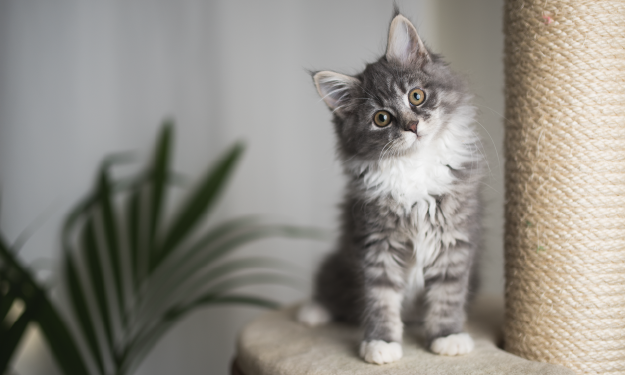Worms in Kittens: Symptoms & Treatment
September 15, 2020
Intestinal parasites (worms) are common in kittens. While they are a cause for concern, effective, safe treatments are available to keep your kitten and family safe.
Symptoms of worms in kittens & cats
For many cat owners, the first sign will be a visible presence of worms in stool. Other symptoms vary, but severe cases can cause:
- poor overall body condition and dull coat
- soft or bloody stools
- vomiting/diarrhea
- distended abdomen
- loss of appetite
- weight loss
How Does a Kitten Get Worms?
Some parasites are transmitted from the mother to her offspring, while others are carried by fleas, mosquitoes, or via infected eggs shed in feces.
What types of worms & parasites can cats get?
Roundworm
Roundworm is one of the most common intestinal parasites of cats. They can be an important cause of illness, and even death, in kittens. Roundworms are passed as a milk-borne, or fecal-borne infection from an infected mother to her kittens. Additionally, roundworm infection can occur if a cat eats an intermediate host such as a rodent, earthworm or beetle. Treatments are effective and simple, though two or three treatments may be necessary.
Hookworms
Hookworms are another intestinal parasite of cats and kittens. They cause anemia and intestinal distress. Kittens contract this parasite either through their mother’s milk, feces, or through the skin (if the mother has hookworm). Several effective methods exist to diagnose and treat hookworm.
Coccidia
Coccidia is a parasite common to kittens less than six months of age. The most common symptom is diarrhea. Severely affected animals may also vomit, lose their appetites, become dehydrated and even die from the disease. Coccidiosis is very contagious among young kittens, but effective, safe treatments exist.
Tapeworms
Tapeworms are not particularly harmful to cats and few clinical signs are attributed to their presence. In rare cases, tapeworms may cause debilitation or weight loss if they are present in large numbers. Tapeworms are transmitted when a cat ingests an infected flea or prey animal. Diagnosis and treatment is simple and effective.
Heartworms
Heartworms are a parasite previously considered to affect dogs, but detection of this disease in cats has become more common. Affected cats may cough or experience other more severe heart or lung problems. Diagnosis and treatment is complicated in cats, and prevention is best.
What to do if your cat has worms
Call your veterinarian! Depending on what type of parasite your cat has, you will likely need a de-wormer (such as Panacur or Drontal) or some other type of medication to safely kill the worms. Your veterinarian may also recommend starting your cat on a monthly topical or oral flea prevention. Some cats may also need IV fluids and supportive care depending on their condition.